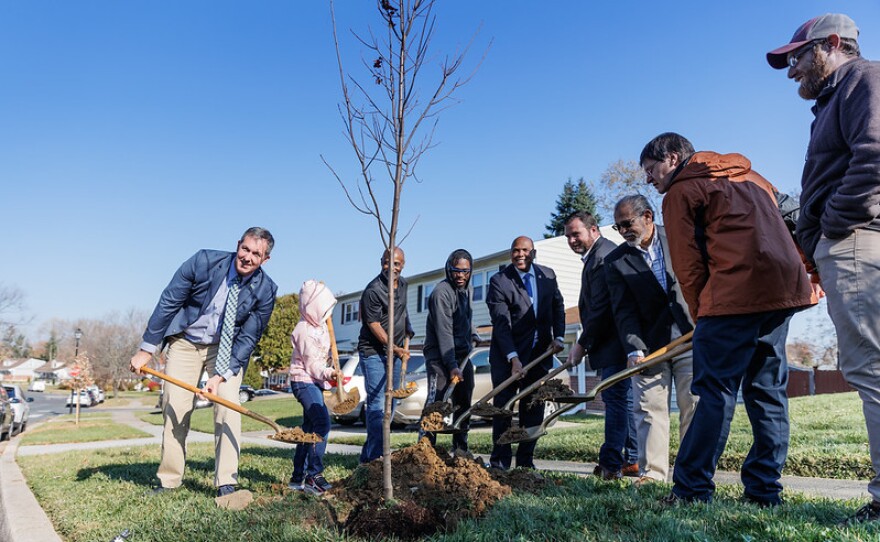Urban foresters with Baltimore County’s tree replacement program are on track to plant 512 trees in four neighborhoods. That’s welcome news for Darryl Rouse, a Windsor Hill resident. Since 2014, thousands of trees along county streets have been removed for various reasons.
Standing in front of his single family home — where county officials and reporters gathered — Rouse said his quiet suburban street was once lined with trees. But once the trees aged, he was the only one replacing them.
“We need to have something for our grandchildren,” said Rouse. “Something now is one thing, but we got to think about sustainability [so] the next generations get a chance to enjoy these trees.”

Johnny Olszewski, the county executive, said there were no policies to replace trees before his administration. Last spring, he set aside $1.25 million over two fiscal years for the Department of Environmental Protection and Sustainability (DEPS) to plant 1,000 trees per year, as part of the tree replacement program. By the end of 2023, he expects more than 1,600 trees to be planted.
“Expanding tree canopy is essential to the health of our communities,” said Olszewski. “It helps improve our air quality. It cools our streets. In our homes, it provides shade for pedestrians and it reduces the risks of flooding. This is green sustainable infrastructure in action.”
In addition to the Street Tree Replacement Program, Olszewski has launched another urban tree canopy effort. Councilman Pat Young, a Catonsville Democrat who represents the Windsor Mill area, encouraged more residents to participate in such efforts.
“If you're wondering, how can I have it come to my neighborhood? Join your community association, stand up a community association, and reach out to us. We can help you find out how to be stewards of sustainability in the county, and also be better representatives for you.”











